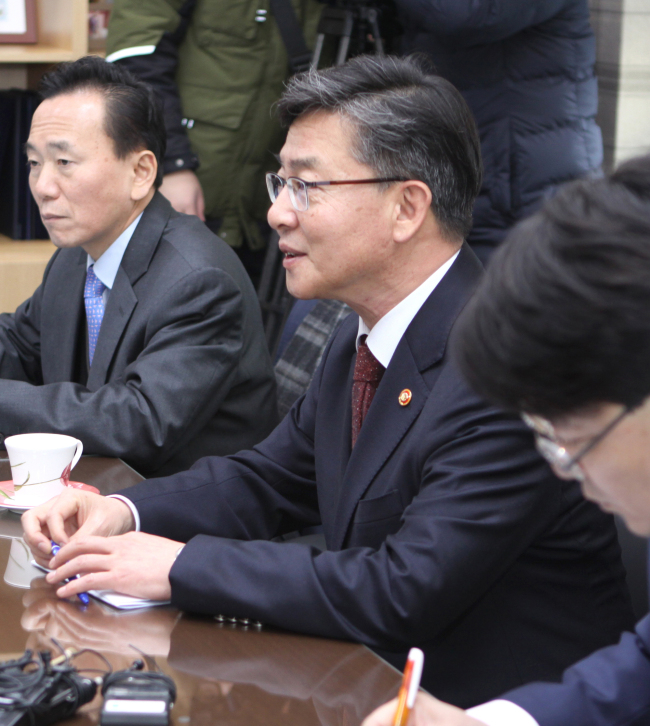South Korea's unification ministry has asked China to notify its people not to buy goods produced at the now-shuttered inter-Korean industrial park in North Korea, a government official said Wednesday.
The government said that it has identified some attempts by North Korean authorities to sell South Korean owned goods made at the Kaesong Industrial Complex, including rice cookers, to buyers in China.
The move to check the North's attempt to sell such goods comes almost a year after Seoul shut down the industrial park in the North's border city of Kaesong on Feb. 10, 2016, in response to Pyongyang's nuclear and missile tests early last year.
 |
Unification Minister Hong Yong-pyo (Yonhap) |
"It is illegal for North Korea to sell products made at the complex, as South Korean nationals exercise ownership," Jeong Joon-hee, a ministry spokesman, said at a regular press briefing. "So we've asked China not to buy those products (if they are sold)."
South Korean firms operating factories at the zone had to leave their products and flee the complex as North Korea kicked out all South Korean nationals at the park and froze their assets in retaliation of Seoul's decision to close operations.
A ministry official said that North Korean authorities may have tried to sell some of the goods in China by showing photos to prospective buyers. It is not confirmed whether the goods were actually moved out of the complex or that they were actually sold, he added.
A total of 124 South Korean firms operated factories at the complex, some 50 kilometers northwest of Seoul, employing more than 54,000 North Korean workers to produce labor-intensive goods, such as clothes and utensils.
Earlier in the day, Unification Minister Hong Yong-pyo visited two firms that used to run factories in the park to encourage them to normalize their business operations with the closure of the complex marking the first anniversary this week.
The two companies previously did not have factories in South Korea, but have recently opened production lines in the country after being forced out of Kaesong. (Yonhap)








